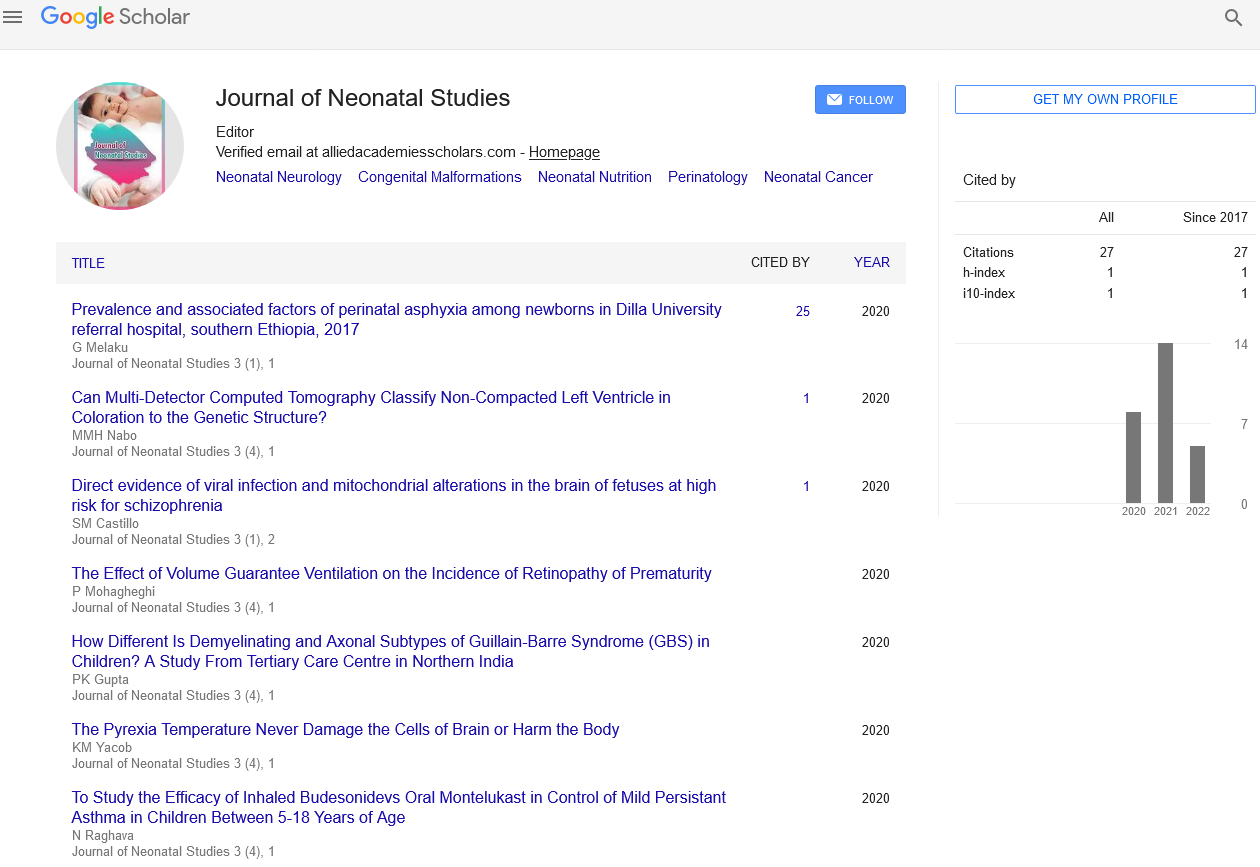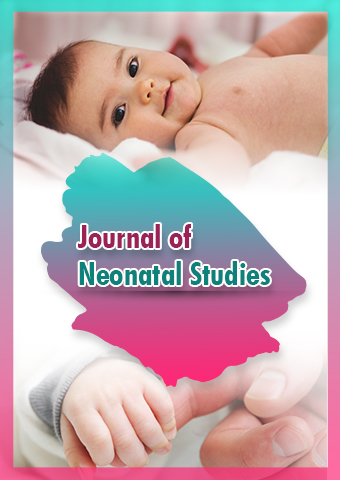Perspective - Journal of Neonatal Studies (2024) Volume 7, Issue 1
Neonatal Nephrology: Unraveling the Complexities of Early Renal Health
- Corresponding Author:
- Janessa Chang
Department of Nursing, Peking University, Beijing China
E-mail: janessac.edu.@in
Received: 03-Jan-2024, Manuscript No. JNS-24-124925; Editor assigned: 05-Jan-2024, PreQC No. JNS-24-124925 (PQ); Reviewed: 19-Jan-2024, QC No. JNS-24-124925; Revised: 25-Jan-2024, Manuscript No. JNS-24-124925 (R); Published: 05-Feb-2024, DOI: 10.37532/JNS.2024.7(1).192-193
Introduction
Neonatal nephrology, a specialized branch of pediatric medicine, focuses on the diagnosis and management of kidney-related issues in newborns. The neonatal period is a critical phase in a child’s life, and any disruptions to renal function during this time can have profound and lasting effects. This article delves into the intricacies of neonatal nephrology, exploring the unique challenges and advancements in understanding and addressing kidney-related conditions in newborns.
Description
Development of the neonatal kidney
Understanding neonatal nephrology begins with an appreciation of the complex developmental processes that shape the kidneys in utero. The kidneys play a crucial role in maintaining fluid and electrolyte balance, eliminating waste products, and regulating blood pressure. The intricate development of the nephrons, the functional units of the kidney, starts early in gestation.
During the embryonic period, the metanephros, the precursor to the kidney, undergoes a series of intricate steps to form the functional organ. By the time a fetus reaches the end of the first trimester, the basic structure of the kidneys is in place. However, the functional maturity of the kidneys lags behind their structural development, making neonatal kidneys unique in their physiology and vulnerability.
Common neonatal renal conditions
Several renal conditions can affect newborns, ranging from congenital anomalies to acquired disorders. One of the most prevalent congenital anomalies is congenital hydronephrosis, characterized by the dilation of the renal pelvis due to an obstruction in the urinary tract. Other conditions include renal dysplasia, polycystic kidney disease, and renal agenesis.
Acquired conditions, such as neonatal Acute Kidney Injury (AKI), may result from various factors, including perinatal asphyxia, sepsis, or exposure to nephrotoxic medications. Identifying and promptly addressing these conditions is crucial for preventing long-term complications and ensuring optimal renal health in neonates.
Challenges in diagnosis and management
Diagnosing renal disorders in neonates poses unique challenges due to limitations in communication and the complexity of neonatal physiology. Unlike older children or adults, newborns cannot express their symptoms verbally, making it essential for healthcare providers to rely on clinical observations, laboratory tests, and imaging studies.
The management of neonatal nephrological conditions is often intricate, requiring a multidisciplinary approach involving neonatologists, pediatric nephrologists, and other specialists. Treatment strategies may include supportive care, pharmacological interventions, or, in severe cases, surgical interventions. Maintaining fluid and electrolyte balance is particularly critical in neonates, as their immature kidneys may struggle to regulate these parameters independently.
Advancements in neonatal nephrology
Recent advancements in medical technology and research have significantly improved the understanding and management of neonatal nephrology. Neonatal renal ultrasound, for instance, has become a valuable tool for diagnosing structural abnormalities in the kidneys. Additionally, genetic testing has allowed for early identification of hereditary kidney disorders, enabling proactive management and counseling for affected families.
The use of biomarkers to detect and monitor neonatal AKI has also seen substantial progress. Biomarkers such as serum creatinine and urine Neutrophil Gelatinase-Associated Lipocalin (NGAL) provide valuable insights into renal function and injury, aiding healthcare providers in timely intervention and personalized treatment plans.
Preventive strategies and antenatal counseling
Given the crucial role of the prenatal period in shaping neonatal renal health, antenatal counseling has become an integral component of neonatal nephrology. Routine prenatal ultrasounds and genetic screenings allow healthcare providers to identify potential renal anomalies early in pregnancy, facilitating appropriate planning and intervention.
Antenatal counseling plays a vital role in preparing parents for the challenges associated with neonatal renal conditions. Educating parents about the nature of the condition, available treatment options, and potential long-term outcomes empowers them to make informed decisions and actively participate in their child’s care.
Conclusion
Neonatal nephrology represents a specialized field dedicated to unraveling the complexities of early renal health. The unique challenges posed by the neonatal period, coupled with the advancements in diagnostic tools and treatment modalities, have transformed our ability to understand and address kidney-related issues in newborns.
As we continue to delve into the intricacies of neonatal nephrology, it is imperative to emphasize the importance of early detection, timely intervention, and comprehensive care. By doing so, healthcare providers can pave the way for improved outcomes and a brighter future for neonates facing renal challenges from the very beginning of their lives.

